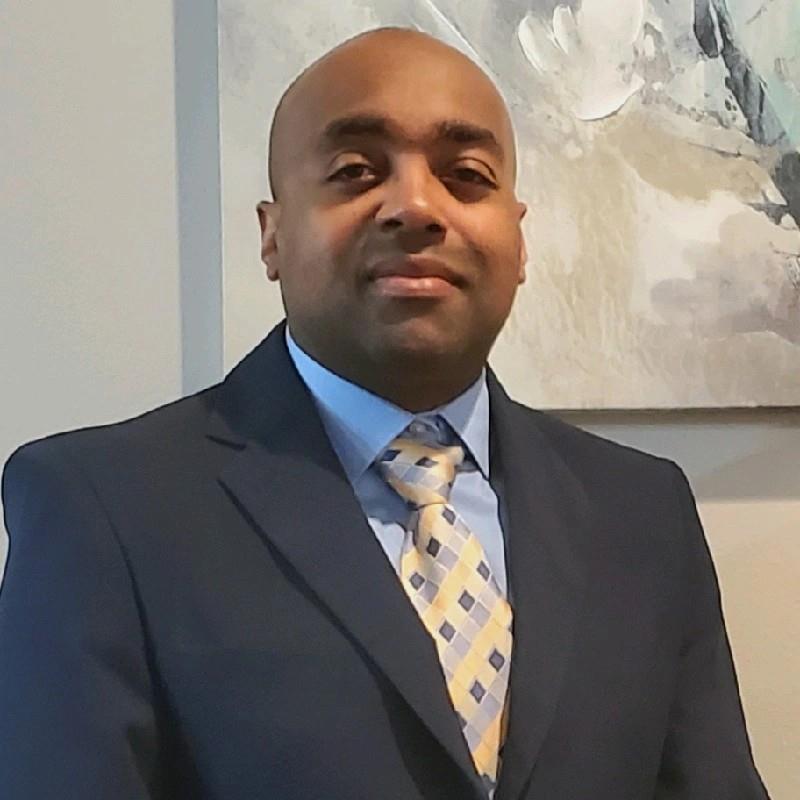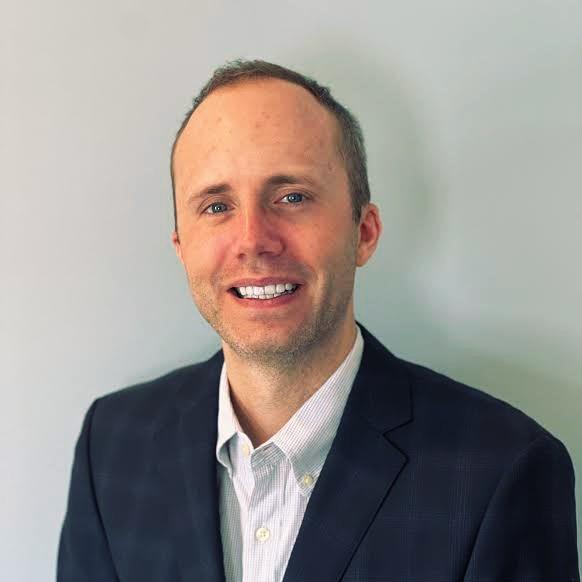Smart selling for Big Real Results
Sales legend and trainer Steve Gielda—co-founder of Ignite Selling—joins Samuel to break down what truly drives performance in medical device, pharma, biotech, and diagnostics. Steve traces his path from selling 3M copiers out of a van to leading life-sciences consulting with Neil Rackham (of SPIN Selling) and building Ignite’s simulation-based, gamified training that accelerates pipelines and product launches.
We get tactical fast: how today’s top reps think strategically, map real stakeholders (beyond the “friendly” contacts), and use smarter questions that challenge clinical and business assumptions—not just needs. Steve explains when SPIN still shines, where Challenger-style questions raise the bar, and why role-playing strategy is as critical as role-playing the call.
For frontline managers, Steve lays out the playbook: coach early in the pipeline, ask more than you tell, know when to sell vs. when to coach, and—yes—let your reps fail on safe calls so they learn to win without you. We dive into work ethic vs. knowledge, turning average reps into top performers, and the signals that a high producer is (or isn’t) ready for leadership.
If you want practical frameworks to sharpen your questioning, focus your account strategy, and elevate your team’s coaching culture, this episode delivers candid insights you can apply on your very next call.
Connect with Steve: LinkedIn
Connect with Me: LinkedIn
Love the show? Subscribe, rate, review, and share! Here’s How »
Want to connect with past guests and access exclusive Q&As? Join our EYS Skool Community today!
Watch the episode here:
Or Listen to it on your favorite platform:
Episode Transcript:
00:05 – Samuel Adeyinka (Host)
Hello and welcome to the Medical Sales Podcast. I’m your host, samuel, founder of a revolutionary medical sales training and mentorship program called the Medical Sales Career Builder, and I’m also host of the Medical Sales Podcast. In this podcast, I interview top medical sales reps and leading medical sales executives across the entire world. It doesn’t matter what medical sales industry from medical device to pharmaceutical, to genetic testing and diagnostic lab you name it. You will learn how to either break into the industry, be a top 10% performer within your role or climb the corporate ladder. Welcome to the Medical Sales Podcast and remember, I am a medical sales expert, sharing my own opinion about this amazing industry and how it can change your life. Steve, how are we doing today? I’m doing great. It’s great to be with you, absolutely, absolutely Great to have you on the show. So why don’t you tell the audience who you are and what you do?
01:01 – Steve Gielda (Guest)
Sam, my name is Steve Gilda and I am the co-founder of a company called Ignite Selling and we are a sales enablement sales training company that specializes in the life science marketplace. We help organizations in the medical device, pharmaceutical, biotech, diagnostic space do a better job of finding ways to accelerate their sales pipeline, launch new products and to improve overall sales coaching for the organization launch new products and to improve overall sales coaching for the organization Nice.
01:28
How long have you guys been around? The company has been around now for 10 years. We started the business in 2010. I have been in this space, in the performance consulting space, since 1997. So well over 20 years now, which is hard to believe.
01:40 – Samuel Adeyinka (Host)
Wow, wow. Okay, take us back. Where did you start your career and how’d you get into life sciences?
01:46 – Steve Gielda (Guest)
I started my career right out of college working for 3M Corporation and that was my first sales entree and I was selling copiers out of the back of a van up and down the streets of Washington DC and Northern Virginia and that was a straight commission sales job. When I came out of college we had to buy a van. We carried around three to four copiers and we would cold call door to door these high rise buildings carrying around copiers on a gurney, and that was back in the 80s. And then I spent 10 years there and then I was hired away by a gentleman by the name of Neil Rackham.
02:17
Some of your listeners might be familiar with a book called Spin Selling that he had written, as well as several other books, and I went to go work for Neil back in 1997 and he asked me to lead his life science consulting practice and so I didn’t know a whole lot about the medical device space. My wife worked for a medical device distributor at the time and so I got smart fast and started doing research, started writing papers and sort of understanding how started writing papers and sort of understanding how do hospitals buy and what are some of the challenges that sales organizations face in terms of creating value in the hospital and that was my entree back in early 1997. And I had been working with companies in this space since that time, companies like Medtronic and Boston Scientific, and diagnostic company like Quest Diagnostics or Roche Laboratories or Beckman Coulter, to pharmaceutical companies like Sanofi and Novartis and that kind of stuff. So I’ve had the great pleasure of working with large companies as well as startups. So it’s been a great run Wow.
03:22 – Samuel Adeyinka (Host)
So, okay, and the premise, I guess the culmination of everything you’ve learned over these years. Has it led to Ignite Selling, or is that just one of the many different types of selling platforms, for lack of a better word?
03:38 – Steve Gielda (Guest)
We started I was when I worked for Neil Rackham. I was, I was part of his team and my job was to bring spin selling into this life science marketplace and did that for five years. And then Neil sold the business in 2000 and provided me an opportunity to decide what I wanted to go do if I wanted to stick with the new owners that own the business or go off on my own. At that point in time, I decided to go off on my own and in 2002, I became a distributor for sales training products and I ran that business for a number of years. And then I was writing papers Me and a friend of mine who’s now my business partner, kevin Jones published our first book in 2012.
04:18
And that was kind of the impetus of saying, hey, maybe we need to create our own learning methodology, our own modality. And we took what we had learned and said, okay, what makes us unique? What makes the company different? And we decided to think about, well, what is it that salespeople really like or dislike about sales training? And we kind of said, well, things they don’t like is a lot of role plays. What they don’t like is sitting in a classroom with a bunch of PowerPoint, and so, therefore, we decided that we were going to take a unique approach, and everything that we do you can see by some of these posters you see about behind my head. Here is we’ve taken an approach where we are launching a simulation-based approach, so it’s a gamified learning to sales training, and we have specialized just in the life science marketplace now for a little over a decade and really helping organizations do a better job of finding ways to improve the performance of their sales teams through simulations, and is that Ignite Selling, or is Ignite Selling part of that?
05:20
That is Ignite Selling. Ignite Selling is the solution provider that brings together all of these different modules. We have 14 different modules to help our organizations find ways to do a better job this point.
05:42 – Samuel Adeyinka (Host)
It’s like in the Bible of sales. So you know, spin selling. What challenger sale, integrity sale, there’s a couple that are just staples.
05:51 – Steve Gielda (Guest)
Spin selling being one of them.
05:52 – Samuel Adeyinka (Host)
Yeah, but you guys have literally evolved to ignite selling and beyond. And I shouldn’t say you guys right. But what was part of spin selling, which is you has taken it somewhere else and evolved to Ignite Selling and beyond. So is spin selling still relevant? Should that still be in the playbook of every sales rep? Is it outdated now? Do we discard it?
06:14 – Steve Gielda (Guest)
That’s a great question. The short answer is no, I don’t think that it should be discarded. I think that what Neil did by creating a questioning framework with situation, problem, implication, need, payoff questions are extremely relevant today and I think they will always be relevant. I think what has shifted is how the model should be used. In today’s world of sales, it’s not just about needs and wants anymore. When salespeople are merely going in and asking questions to understand what the pain points are of their customer, it’s just not enough. I think what top performers are doing today is taking those problem and implication questions and raising the bar by asking questions not just about needs and wants, but about critical metrics to which their customers are being held accountable to, and so that they can better align their unique capabilities to the business metrics of the OR department or to the chief of orthopedics or to the director of pharmacy. So I think that those questions are still very relevant today, but it’s a different application of those questions.
07:22 – Samuel Adeyinka (Host)
So okay. So if I’m new to med sales and I’m thinking, okay, you know what, I trust, my company has good stuff, but I’m an overachiever and I’m going to go give myself my own sales education, spin selling is a book that I have in my closet. Maybe I should get ignite selling too. If I start reading spin selling, how should I start to position it so that what you’re saying is still applicable and I can do it better?
07:51 – Steve Gielda (Guest)
Great question. I think that my advice to somebody who’s new to mid-tech sales would probably not to read spin selling first. I would probably say flip it around a little bit and spend selling first. I would probably say flip it around a little bit, go find a book that teaches you how to think more critically, how to think more strategically, so that the questions that you ask have more relevancy to the customer. So, in other words, it’s about thinking about who should I be engaging and what do they care about, so that my questions resonate better.
08:23
If you ask most sales representatives today in the med tech space, just ask them a very simple question what are the business metrics that your customers held accountable to in the hospital? They often don’t know. They know what their pain points are, but they don’t understand what the metrics are that they’re held accountable to. And, let’s face it, people buy from people that help them do better on their job. And if I frankly don’t know what you’re held accountable to, how well did you achieve those metrics last year? How can I help you going forward? So I think that by getting a book like we have our book Ignite your Sales Strategy, or there’s several others out there that and what the heck you’re really trying to say so.
09:12
I think role-playing say say, if I can just interject I think role-playing can also be done, not just in terms of let’s practice how this customer conversation is going to go, but let’s also role-play different strategic scenarios that may take place. Yeah, no.
09:31 – Samuel Adeyinka (Host)
Right so.
09:32 – Steve Gielda (Guest)
I can say let’s take a look at the VAC committee in the hospital, yeah, and let’s just kind of role play this for a moment. What happens if you go after the director of OR as opposed to the risk manager? Let’s kind of just play that out just for a moment. What are some of the questions that we should be asking? The risk manager as opposed to the director of OR, as opposed to the chief nursing officer, right? So I think strategy should also be role-played. Let’s kind of map out these different avenues of what can happen. But I think role-playing and never give it up, I think organizations that fall victim to their sales representatives’ denial of wanting to do role plays will simply find themselves really struggling in the end.
10:19 – Samuel Adeyinka (Host)
So then, on that note, I’m going to ask you to help me show us what it looks like to do it I guess, the wrong way and what it looks like to do it the integrity selling way. And let’s take a really basic example. Maybe we’ll do a med device and pharma example. Med device you got a couple of minutes with the surgeon in between cases, right? And then for the pharma example, same thing a couple of minutes with the physician in between patients. What does it sound like to do it, the way that I guess reps are probably doing it right now, and what does it sound like to do in it being the Ignite selling way?
10:55 – Steve Gielda (Guest)
Yeah, and, by the way, I’m a big fan of integrity selling. So I know I know you mentioned integrity selling, big fan of integrity selling. But I think that if you’re asking me what would good look like doing it the Ignite selling way, as opposed to maybe, what reps are doing today, let’s kind of break it down in terms of what does Ignite sellingelling way as opposed to maybe what reps are doing today. Let’s kind of break it down in terms of what does Ignite Selling help sales representatives do better. Well, one thing we help do better is to help them think more strategically, to think better about who and what they’re going to go, what’s happening inside that hospital let’s just use that as a med tech kind of example or the physician’s office, and so that’s one set of skills is how do you think more strategically. And then the other set of skills is how do you go execute upon that plan. So I think that if I was to break it down, let’s just kind of look at strategically what’s the average performer doing versus the top performer.
11:53
I think your average performers today in the med tech world I don’t even say even the pharmaceutical world have a tendency to go meet with those individuals that are willing to meet with them. They’re going to go to their friends. They’re going to go to their buddies. Why? Because they’re available, I’m sorry, lowest hanging fruit, lowest hanging fruit, and so that’s just a match. That’s the least, the past, the path of least resistance. So, therefore, I’m going to go talk to these folks Now. Are those folks always the best people to talk to in order to try to displace a competitor? Maybe it’s a good place to start, but this is the only place you need to engage. So the average performers have a tendency to only hang out with those people that they know. Where the top performers have a tendency to say let’s take a look at a map of who all the potential key stakeholders are, let’s go validate for this particular decision, to make a change from what they’re currently doing to what we want them to go do. Whose voice matters most, as opposed to assuming? Well, the last time we worked with them, it were these three key influencers. Therefore, it’s likely to be the same three key influencers before Dangerous assumption.
13:04
So the lesson learning here, just in this one example, is average performers go to where the low-hanging fruit is, where the path of least resistance is, to where their friends are. Top performers challenge their assumptions and they expand upon their critical thinking and simply saying who else, who else might I need to engage with? And then they begin thinking about how do I find that out, so that you can go to those people that you know and simply saying, hey, sam, other than yourself, who else is involved in this decision-making process that maybe I need to meet? That’s what top performers are doing, and I think that’s probably true in both med tech, biotech or pharma. So that’s, from a strategy standpoint, that’s what the best of the best, as opposed to the average performers, might be doing in their round strategy.
13:54
I think when you’re looking at the execution, average performers are kind of the shoot from the hip. We ask when we’re out in the field with sales representatives you know, let’s talk a little bit about your plan before you go into this, this account, before we go meet with Dr Miller or whatever it might be. What we often find out is that planning is from the time they close their door to their car to the time they open up the physician’s office door, and that’s about the planning that takes place, and I think that’s what average performers do. I think what top performers do is they get more thought to not just what are the questions that I’m going to ask to understand what their needs are, but to ask questions that challenge the customer’s thinking.
14:36 – Samuel Adeyinka (Host)
I hope you’re enjoying today’s episode and I want to let you know our programs cover the entire career of a medical sales professional, from getting into the medical sales industry to training on how to be a top performer in the medical sales industry to masterfully navigating your career to executive level leadership. These programs are personalized and customized for your specific career and background and trained by over 50 experts, including surgeons. Our results speak for ourselves and we’re landing positions for our candidates in less than 120 days in top medical technology companies like Stryker, medtronic, merck, abbott you name it. Would you run an Ironman race without training and a strategy? You wouldn’t, so why are you trying to do the same with the medical sales position? You need training, you need a strategy and you need to visit evolveyoursuccesscom. Fill out the application schedule some time with one of our account executives and let’s get you into the position that you’ve always dreamed of.
15:33 – Steve Gielda (Guest)
I think the challenger sale that came out is a beautifully written book. I think it’s spot on. I think that we can no longer accept the types of questions that Neil Rackham used to call situation questions, which we call discover questions. Simply get to the point.
15:52
We ask salespeople the question does the questions that you’re asking benefit you or the customer? So if you’re asking questions about how many cases you’re currently doing today, what are some of the challenges you’re having with those cases? What are some of the metrics you’re trying to achieve? Customers know the answer to that thing that quick. You’re not adding any value there. However, if you were to ask them a question that would challenge their thinking that instead of just about you know how’s the procedure currently being managed today to ask them a question, how does the current procedures today drive the metrics of you needing to reduce recovery time? Now, that’s a thoughtful question that a customer now has to think about, but the average performer doesn’t take the time to plan for those questions. They’re going in and asking those discover questions, those fact-finding questions, what Neil Rackham called the situation questions. As opposed to, the top performers are thinking a little bit deeper about how do I challenge this customer’s thinking and get them to really tell me the story behind the story.
16:58 – Samuel Adeyinka (Host)
So that’s how I would probably answer the question. So you know, from your experience, would you say that an average performer can become a powerful top performer? Or top performers are born and average performers are born and maybe they can, they can scale up a little, but there’s there’s, there’s a limit.
17:24 – Steve Gielda (Guest)
I don’t think top performers are born and I and I always think that even your average performers, if they’re willing to change and grow, they can grow. Average performers, if they’re willing to change and grow, they can grow. Take a look at any average athlete. Okay, you know, we say that, you know this person. Call them average based upon where they were, mr Irrelevant in the draft, right, if you’re a football player. Take a Brock Purdy he’s less than average. He was the last person drafted. Did he grow? Did he mature into a great NFL quarterback? He’s an NFL quarterback, he’s one of 32. He’s damn well good, but he was average according to everybody else, and he probably was when he first came out of college. Sure, but I think it’s very true.
18:14
Even in the world of sales, I think that if people become a master of their craft and start examining and getting feedback from others to say, hey, how do I improve, I think that you can take an average performer and make them a top performer. Now here’s the real question what does it take to stay a top performer? And I think that’s where I think top performers. What does it take to stay a top performer? And I think that’s where I think top performers always have to always be looking at how do I sharpen my game, how do I stay on top of what’s happening?
18:46
And if you start thinking about, yes, some of the top performers, those President’s Club winners today, what are some of the trends that are happening in the healthcare field today that impacts how customers make their buying decisions for your product? Do they know Top performers? Do Top performers know that there are trends taking place in the hospital marketplace today where there are trends around nursing shortages, challenges around reimbursement? Think about what those trends are that are taking place in the industry and ask yourself do you know how your products can help a hospital combat or to capitalize on those trends? Top performers know that stuff. Average performers think it’s just too much work and they’re never going to do it.
19:35 – Samuel Adeyinka (Host)
So from your experience, steve, would you say that, when it comes to becoming a top performer, you see a challenge with the work ethic or you see a challenge with the knowledge, the lack of knowledge? Which one gives you, which one do you see more of and is the bigger?
19:52 – Steve Gielda (Guest)
challenge. Yeah, I think the bigger challenge is the work ethic. I think that with proper work ethic you can gain the knowledge, you can gain the skills, you can gain the things that you need to be successful. But you, but I think there’s another factor that comes into here. One can’t get good on their own. One will only get better with feedback. One will only get better with feedback. So, if you want to improve, get that coach to give you feedback. Get that coach to challenge your common assumptions that you’re making about what you’re getting ready to go do. Get a coach to listen to a conversation that you’re getting ready to go have and agree upon with that manager.
20:41
Hey, listen, I’m really struggling with asking that follow-up question that’s more meaningful to this customer. Can you help me when I’m in this call, write down the question, listen to what the customer said and see if I’m responding appropriately? Top performers know how to work with someone to identify their gaps and say I want to get better at this. Can you help me and devise a plan to go get better? So I know that if I am trying to get better you can see I have a guitar back here and I play guitar on a regular basis.
21:13
But I’ve been playing guitar for over 20 years. Shoot, I mean probably 40 years. I’m 60 years old now. So I’ve been playing guitar for over 20 years. Shoot, I mean probably 40 years. I’m 60 years old now. So I’ve been playing guitar, say, for 40 years, and one could say I’m at the top of my game. But boy, I tell you, when I’m playing with people who really know how to play, I’m learning something constantly and I’m like well, how did you do that? There’s something simple break it down and they’ll say what you need to do in order to do what I just did is you’ve got to start with this first. Sure, and then I’ll. Then I’ll do it and I can sit here in my home and I can go ahead and work on what they have told me to go work on. But if I’m not showing it to them and getting feedback from them, I don’t know if I’m ever really getting better.
21:59 – Samuel Adeyinka (Host)
Wow, yeah, yeah, yeah, so I need, yeah, can you coach work ethic?
22:01 – Steve Gielda (Guest)
Wow, great question. Can you coach work ethic? I think that you can advise people what it’s gonna take to be successful, but that work ethic, that drive, I think, is a personal thing. You can demonstrate what good work ethic looks like as a manager. You can demonstrate what good work ethic looks like as a manager. You can talk about what the outcomes of good work ethic are, but frankly, it takes someone to reach deep down in their gut and simply saying do I want to get better or am I satisfied where I’m?
22:33 – Samuel Adeyinka (Host)
at so. So I got, I got to know. You know you work with tons of teams. In all your experience I’m sure you came across teams where you were like, okay, two of them are rock stars and they’re chomping at the bit, and once I showed them a couple of things, they’re going to just fly. And three of them are they work at like struggling. What are you telling that hiring manager? What are you telling that hiring manager? What are you telling the director, when that’s the scenario, and how often do you see that?
23:02 – Steve Gielda (Guest)
Well, we see it all the time. I mean, I think that it’s. It’s. It’s rare to see a team Okay, you have a sales manager with a team of seven, eight, nine reps where all of them are rock stars.
23:15
Sure, okay. The question that we have to ask managers is you know who are you investing your time with and when? We often find that sales managers have a tendency to ignore those rock stars, those people that are crushing their quota 120% year after year. Managers simply say you know what? I’m going to leave Sam alone. Samuel’s going to just do his thing. I’m just going to let him rock and roll. I don’t want to screw him up and therefore, what I’m going to do is I’m going to end up investing my time with people that are really struggling.
23:47
Research has shown time and time and time again that if you spend your time with those individuals that have the highest level of potential, spend your time with those individuals that have the highest level of potential, not their performance. The highest level of potential is where you’re going to find your team to grow. So you have to assess does this person have the potential to succeed and they’re simply just performing in a poor time right now? Is why is their performance down? Is it because they never have the potential to succeed and they were a bad hire? Now is why is their performance down? Is it because they never have the potential to succeed? They were a bad hire, which is hard to admit, because I hired them right. Not going to admit that. I hired somebody that has low potential. But you have to come and look at yourself in the mirror and say does this person have the potential to do what I’m asking them to go do? If not, get rid of them? Okay’s hard to admit, but you want people on your team that have the potential to succeed. Then, if they’re performing low, try to get them to drive to that potential, but push that potential.
24:48
Work with those people. One of the things I tell managers is I’ll ask this question what are you doing to help your team become successful independent of you? So what are you doing on a daily basis to help your team become successful when you’re not there? It’s all about what you ask of them and how you challenge them to get better. Too many managers simply want to do it for them. Why? I’ve got a number to hit. I’ve got to hit quarter of a million dollars this quarter and I know I’m looking at my pipeline. If I just go help out Sally and Frank and Mike close those deals, I’ll hit my quota. So my job becomes I’m going to go help them close the sale, as opposed to let me help my team go close those sales independent of me, so they can do it time after time after time again. Sure.
25:44 – Samuel Adeyinka (Host)
And what does that normally end up looking like?
25:47 – Steve Gielda (Guest)
Well, it really does require them to fail Not stepping in. Samuel, I don’t know if you’re a parent.
25:56 – Samuel Adeyinka (Host)
Oh yeah.
25:57 – Steve Gielda (Guest)
I am All right. So how many kids do you have? Two, two what age? 10 and 15. 10 and 15. So you’ve seen kids make mistakes, of course, and it’s good for them to make those mistakes and learn from those mistakes. I think what we do in the world of sales is we don’t want our salespeople to make mistakes because it’s too risky.
26:23 – Samuel Adeyinka (Host)
If you’re asking this to me, I would think that, as a hiring manager, your sales is making mistakes, your paycheck’s affected too, your family’s now affected too, so they almost have this double-edged sword where, yeah, I guess I could let my rep fail. But if I do, then it’s not coming through for me and reflects bad on me, and I am not about to let that happen.
26:46 – Steve Gielda (Guest)
Correct, that’s the mindset. But if they don’t change that mindset, what’s the implication in the end?
26:54 – Samuel Adeyinka (Host)
It just keeps going and more of their time is required.
26:57 – Steve Gielda (Guest)
They’ll never be successful without me. I always have to be there in order for them to win. So it becomes that the double-edged sword becomes very, very dangerous. But we work with managers and we ask them which of those accounts, when you’re out in the sales representative, do you think is a coaching call versus a sales call? Where are you going to go help sell and when are you going to go help coach? In other words, what are you not going to say a word and you’re going to listen to that rep say something based upon what the customer is saying and you’re going to cringe and you’re going to go.
27:31
oh my gosh no let me try to rescue this one, but don’t do it. Let, oh my gosh. No, let me try to rescue this one, but don’t do it. Let them just feel you know, because it’s a safe call. Then, therefore, you now can get back out to the car, go to the cafeteria, whatever you’re going to do, and let’s just say, debrief this. Ask them some questions.
27:48
When the customer said this and you respond to this, what was the reaction of the customer? How did that happen? What could you have done differently? And they’ll go oh crap, that was a turning point, wasn’t it? It was, but if you ask most managers just a simple question, how do you determine which calls you’re going to coach on versus which calls you’re going to actually sell on? It’s a concept they haven’t even given consideration to. When I’m out in the field with my sales representative, my job is to help them. Help them help himself, sure, and the way that I help themselves by opening up my mouth and talking during the sales call or demonstrating what I want them to do. And, guys, that’s not bad. But every sales call you’re on, as a manager, with a sales representative is not a sales call manager with the sales representative is not a sales call.
28:40 – Samuel Adeyinka (Host)
I’m going to ask you a tough question, steve, because there’s so many ways to answer this, but I want you to give me the top three. What makes from your experience? What makes, time and time again, the most successful managers?
28:57 – Steve Gielda (Guest)
What do you consistently see them do with their teams?
28:59
Top three things. Top three things I think I see managers do with their teams. Number one I think what they do is they challenge their sales representatives’ critical thinking. They ask more than they tell and they listen more than they speak. That’s the number one thing. What managers do is they know how to ask questions that make their sales representatives think they challenge the assumptions and the critical thinking. Number two I think what managers do top some of the top managers do is they know when it’s appropriate to provide coaching advice for an opportunities that are in the sales pipeline. So, in other words, they help their salespeople manage the pipeline, manage those opportunities, and they understand that when I help coach the right things in the early part of that sales pipeline process, good things are going to happen later.
29:50
The bad thing is too often the average sales manager has a tendency to jump into the pipeline. Talk about opportunities. For those opportunities that are in the middle to late stages, for every reason we talked about earlier, they’re trying to close the business. But the second thing that I think top managers do is they do a better job of getting in early with their sales reps to make sure the right things are being done. I think the third thing I see top managers do on an ongoing basis is they let them fail. They let the sales representatives learn from their mistakes, whether it be strategically or tactically, so that they can get better. They’re not there to rescue all the time. So those would be the top things. They ask more than they tell and listen more than they speak. They jump into the pipeline for those opportunities that are early in the process. And the third thing is they’re not afraid to let their sales representatives fail when they’re in the middle of that sales process. Got it?
30:51 – Samuel Adeyinka (Host)
So, because you work so many teams, you’ve, I’m sure, often seen the rep that maybe they don’t even express that they want it, but you’re thinking this is going to be a future manager, this woman or this guy when they become a manager. If they want that, they’re going to kill it. And I’m equally sure that you’ve also seen reps that are like I want to be a manager, I want to be a manager, and you’re like, man, I hope you never become a manager. Talk to us a little bit about that dynamic. What do you see in the rep that signals to you this guy is going to be a great, this girl guy is going to be a great leader. And what do you see in the rep that signals to you they’re killing it as a performer. But until they nip these things in the bud, I don’t see it going further than that.
31:41 – Steve Gielda (Guest)
Frank, I think it comes down to one thing, and that’s the desire or the willingness to help others. I think what you see is in those individuals that are always going to be crushing it and they and they think they want to be a manager, but their actions don’t show it are those individuals that don’t invest time trying to support the other teammates. What they’re doing is they’re and they think they’re supporting by saying come, watch me. I’m not saying that’s not valuable, but that’s about as far as their actions go is come with me on a sales call. Listen, listen to this phone meeting I’m getting ready to have, where I think those individuals that are poised and positioned to be great sales managers are those top performing sales representatives that simply saying hey, mr Manager, how can I help? How can I help raise this team up? I’m crushing it right now and I want to help. And it may not be those words, but it’s their desire to say I want to support the greater good of this team. How do I do that? And you know what Good managers know that when they take those rock stars and they give them those responsibilities, they say hey, samuel, I need your help.
32:53
Right now. You’re 120% of quota and it’s only June. Great job. So what I need some help with is can you help? As you know, we’re onboarding two sales reps. I need your help. Can you help me kind of get these folks ramped up and if they step up and do it, a that helps the manager have more time, prepares and grooms this top sales representative to become a better, to be a leader and a future sales manager, and it kind of makes the world a better place because the sales team is functioning with better use of resources. Too often managers don’t ask so does that answer your question?
33:33 – Samuel Adeyinka (Host)
Yeah, yeah, no, that did that. Did you know? Does that answer your question? Yeah, yeah, no, that did that. Did you know? There’s this ongoing thing, I guess, that if you’re a performer and you’re doing your thing, you don’t have the chops to lead because you only know how to be good, and if you’re not a performer and you’re really personable with your team, you’ve got the chops to lead. I don’t think it’s that simple. I think that’s the narrative that’s out there, that yeah, just because you’re not a performer, that doesn’t mean you can’t be an amazing people leader, and just because you’re a performer doesn’t mean you’re going to be an amazing people leader. I think it’s way more nuanced, but I want to hear your take on it. Do you feel that the average performer that gets along really well with the team can be that amazing manager? Or do you also feel, like so many companies, feel you better be killing it and be a top performer to even be brought into the conversation of leadership?
34:32 – Steve Gielda (Guest)
Yeah, that’s a tricky one, and it’s only tricky because the narrative has been put out that in order to succeed, to get promoted, is that you have got to be somebody that is producing 120, 130% of quota year after year.
34:50 – Samuel Adeyinka (Host)
And that’s a standard in most companies.
34:53 – Steve Gielda (Guest)
That’s just, and I think it’s a poor standard to be set Now. The narrative’s out there and that’s the actions that people take. However, I think there are a lot of top companies out there today that look beyond just revenue quota as a factor for hiring. They are looking at that. Is this person a mentor?
35:15
This person might be that 95% of quota on the average over four years and maybe they’ve hit quota two out of four years, but they have so many other qualities that make them a great leader that sometimes they get overlooked because they’ve only hit quota twice as opposed to hitting quota four times out of four times, and it’s a shame. But I think that you do find more and more companies beginning to look at other factors other than revenue production as a factor for predicted success in sales management. And I think those companies that are using some of the tools that are out there different assessment tools, they’re observing the behaviors of the sales representatives that are on their team. I think you find some of the best sales managers. Let me rephrase that I think what you find is some of the managers, some of the people that grow into a manager, a leadership role, faster, are those individuals that have the innate skill to put others first as opposed to their quota first.
36:20 – Samuel Adeyinka (Host)
I hope you enjoyed today’s episode and remember I have a customized and personalized program that gets you into the medical technology industry as a sales professional or any type of role for that matter. Become a top performer in your position and masterfully navigate your career to executive level leadership. Check out these programs and learn more at EvolvesAssesscom by visiting our site, filling out an application schedule, some time with one of our account executives and allowing us to get you where you need to be. Stay tuned for more awesome content with amazing interviews on the Medical Sales Podcast.



























































































